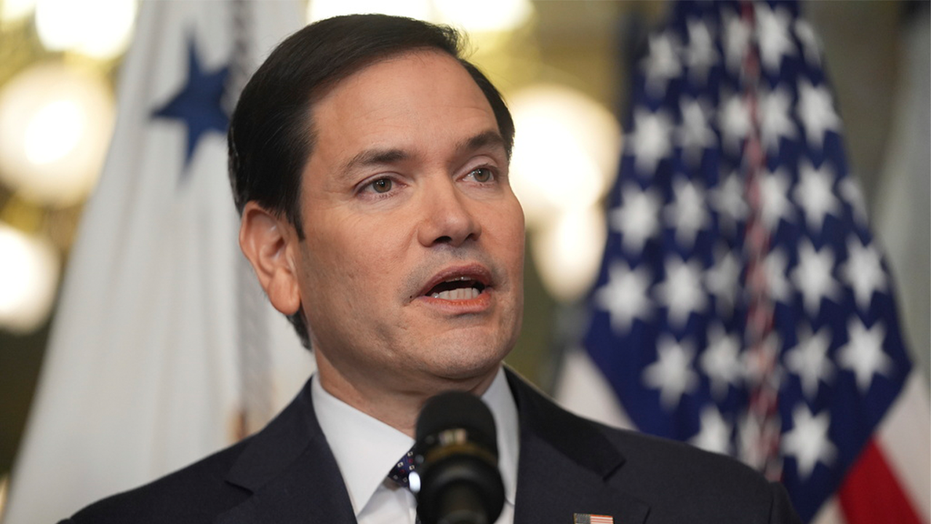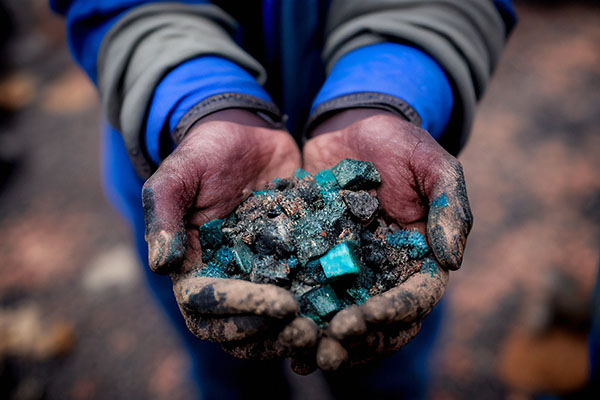The 6 ways Trump has been a gift to the meat industry
President Donald Trump’s first 100 days in office have been a gift to a sector of the economy that gets little attention but has enormous social and economic consequences: the US meat industry. While Congress and both Republican and Democratic administrations tend to do what meat companies want — in part because those companies tend […]


President Donald Trump’s first 100 days in office have been a gift to a sector of the economy that gets little attention but has enormous social and economic consequences: the US meat industry.
While Congress and both Republican and Democratic administrations tend to do what meat companies want — in part because those companies tend to give a lot of money to politicians and intensively lobby them — Trump has been even friendlier than most.
The one striking exception, of course, are the tariffs, which farm groups have opposed and are already feeling the sting from. The ensuing trade war has reduced two of US agriculture’s most important exports to China: pork and soybeans.f
In most other respects, though, the Trump administration has behaved like traditional anti-regulation conservatives. It’s quickly taken a number of actions that directly benefit the meat industry, at the expense of the environment, animals, slaughterhouse workers, and the American consumer.
Here are the six most consequential ones.
1. Speeding up slaughter lines at meat processing plants
Pig slaughter lines are already allowed to process as many as 1,106 hogs per hour, or roughly one pig every 3.2 seconds, while poultry operations are allowed to slaughter up to 140 birds per minute. Yet in March, the US Department of Agriculture announced that it was drafting a rule to allow pig and poultry slaughterhouses to operate even faster.
Labor advocates say the new regulations will further endanger slaughterhouse workers, who already work one of the most dangerous jobs in the country, suffering high rates of injury from the repetitive cuts they must make to animal carcasses for hours on end.
“Increased line speeds will hurt workers — it’s not a maybe, it’s a definite,” the president of the Retail, Wholesale, and Department Store Union, which represents over 15,000 poultry workers, said in a press release.

Animal advocates also worry about how this will impact the billions of animals that move through US slaughterhouses every year. “With fewer protections and higher pressure, animals will endure even more suffering on the already cruel live-shackle slaughter line,” Michael Windsor of the animal protection group the Humane League told me in an email.
The USDA didn’t respond to an interview request for this story.
2. Rolling back food safety measures
Toward the end of President Joe Biden’s term, his USDA proposed — but didn’t finalize — a rule that would require poultry companies to limit salmonella levels in their products and test raw chicken and turkey for six strains. “If the levels exceeded the standard or any of those strains were found, the poultry couldn’t be sold and would be subject to recall,” according to the Associated Press.
The Biden administration aimed to prevent more than 10 percent of the 1.35 million salmonella infections Americans suffer from each year. But that won’t be happening. The National Chicken Council, the industry’s leading trade group, opposed the rule when it was proposed; in April, Trump’s USDA withdrew it.
3. Gutting the USDA’s animal welfare research department
In February, the USDA shrunk a farm animal welfare research team from five scientists to just one, Sentient Media’s Grey Moran reported.

The unit’s research aimed to better understand “the gruesome mutilations and injuries routinely suffered by farm animals, including the pain experienced by livestock during and after castration (the removal of the testicles to prevent further breeding); the far-ranging psychological and physiological impacts of heat stress on farm animals and methods to increase cooling, and ways that farm animal stress is passed down to their offspring,” according to Moran.
The USDA unit also worked with livestock producers to improve animal welfare and had conducted research on pain endured by female breeding pigs kept in tiny cages, a common practice in the pork industry. That work informed California’s farm animal welfare law prohibiting extreme confinement of pigs.
4. Allowing the world’s largest — and perhaps most corrupt — meat company to trade on the New York Stock Exchange
For a decade, JBS, the world’s largest meat company, had been seeking a listing on the New York Stock Exchange to gain new investors to fuel its nearly $19 billion meat and poultry empire. The Biden administration didn’t approve the Brazilian company’s listing, nor did Trump in his first term. But last week, the US Securities and Exchange Commission gave JBS the green light to go public, news that came the same week it was revealed that one of the company’s subsidiaries was the largest single donor to Trump’s inauguration.
JBS has long been embroiled in scandal. During Trump’s first term, the Justice Department fined JBS, JBS’s parent company, and two brothers who control the parent company $280 million for bribing approximately 1,800 Brazilian officials.

In mid-January, JBS agreed to pay $4 million to a youth migrant legal defense organization after the Labor Department found that children had worked in JBS’s slaughterhouses for years. Less than two weeks later, its poultry subsidiary Pilgrim’s Pride — the company that donated $5 million to Trump’s inauguration — paid a $41.5 million settlement to investors over allegations that it had inflated its stock price.
JBS has also long been implicated in deforestation, and last year, New York state’s attorney general took the company to court for its “net zero” climate claims.
5. Increasing poultry industry bailouts for bird flu
Eggs are so expensive right now primarily because of bird flu, which has resulted in the brutal culling of around 100 million egg-laying hens — and over 60 million chickens and turkeys raised for meat — since the current outbreak began in early 2022.
More than half of the nearly $2 billion the US has spent on this outbreak has gone to cover poultry companies’ losses. According to a recent report by advocacy group Farm Forward, around one-third of payments to poultry companies — some $365 million — have gone to 67 “repeat offender” operations with two or more outbreaks.
While bird flu infections are hard to prevent, producers may be disincentivized from strengthening their biosecurity if the USDA guarantees they’ll be compensated for their losses, a problem the Biden administration identified late last year when it implemented an interim rule requiring producers to pass a biosecurity audit to become eligible for compensation.
Despite all this, in late March, the USDA more than doubled the amount that it pays egg companies for each killed hen, from around $7 per bird to almost $17. No matter how weak the poultry industry’s biosecurity, and despite the fact that it culls birds in the most painful ways imaginable, the government has made clear it will generously cover poultry producers’ losses.
6. Banning words and phrases about agricultural pollution
Although many consumers don’t know it, and politicians do little to address it, agriculture is a massive polluter — it’s the largest source of US water pollution, most of it from meat and livestock feed production — and accounts for at least 11 percent of the nation’s greenhouse gas emissions.
In early April, a leaked USDA memo revealed that the Agricultural Research Service, the USDA’s in-house scientific research department, could no longer use 110 words and phrases, including water pollution, air pollution, soil pollution, groundwater pollution, and climate change, in some of the department’s documents. That’ll only make it harder for anyone to understand and ameliorate the meat industry’s social costs.
There’s more: Trump recently proclaimed that he wants to open up a marine refuge near Hawaii to commercial fishing, and USDA Secretary Brooke Rollins has expressed strong support for legislative efforts to dismantle critical state animal welfare laws.
But not all of the Trump administration’s agricultural policies have been favorable to industry (like the tariffs). In March, the Justice Department opened an investigation into the egg industry over price-fixing concerns. Trump has also frozen most of the $19.5 billion set aside in the Inflation Reduction Act to help farmers implement conservation and climate practices, and has canceled a similar $3 billion Biden-era program.
Nor is it necessarily clear that the Trump administration has been bad for animals on net. Animal advocates have cheered recent moves by the FDA and EPA to significantly reduce animal testing, which, although a separate issue from factory farming, could represent a major reduction in a type of animal suffering that has long been unchallenged by both parties.
But when it comes to the industry that’s by far more responsible than any other for hurting and killing animals, the Trump administration has been even more deferential than his recent predecessors. Its positions on meat and the animals who suffer for it could be summed up as simply as “kill, baby, kill.”
A version of this story originally appeared in the Future Perfect newsletter. Sign up here!





















_Brian_Jackson_Alamy.jpg?width=1280&auto=webp&quality=80&disable=upscale#)























































